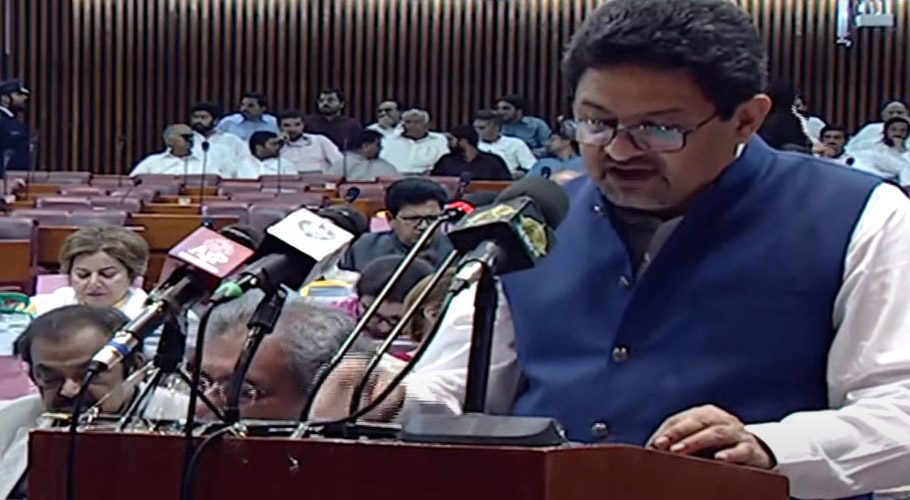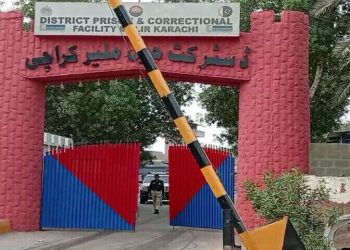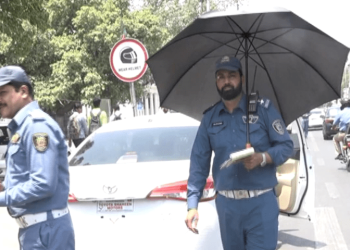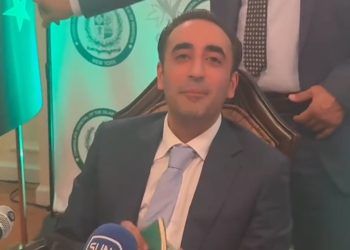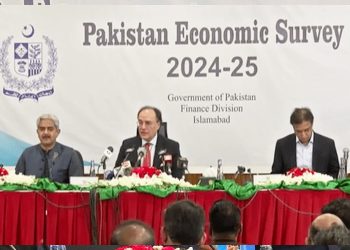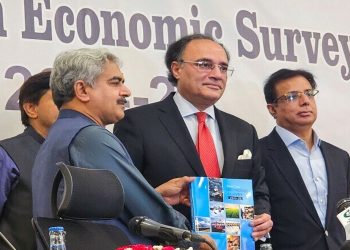ISLAMABAD: Minister for Finance and Revenue Miftah Ismail on Friday presented the federal budget for the fiscal year 2022-23 with an outlay of Rs9.502 trillion to stabilise the economy amid a fianancial crisis.
In his budget speech, Ismail said the previous PTI government’s policies hurt the economy and damaged the lives of the masses. “An inexperienced team brought the country to the brink. Different people presented the budget every year presenting different policies which hurt investor’s sentiment,” he said.
The finance minister Pakistan has been facing skyrocketing inflation due to the “incompetency” of the PTI-led government. He assured that the new coalition government will pull Pakistan out of the economic crisis.
“The problem is that growth is 3-4%, but when it moves up to 5-6%, current account deficit goes out of control which increases our imports. We need to adopt new thinking, to facilitate the lower-income section to increase domestic production,” the minister said.
The outlay of the federal budget has been estimated at Rs9.5 trillion, almost a trillion rupees higher than last year’s outlay. The finance minister highlighted that Pakistan has become the third-most-expensive country due to the incompetency of the PTI-led government.
He said the budget focused on fiscal consolidation to cut budget deficit prioritizing practical austerity measures along with strategies to enhance tax-to-GDP ratio, reduce gross debt, slice trade and current account deficits and promote sustainable economic growth.
Defence budget increased to 1.5 trillion
Miftah Ismail said the budget was being presented at a critical juncture after the previous government caused huge damages to the economy during its tenure. He said the coalition government introduced drastic measures in the federal budget to uplift economy and put it on sustainable growth path.
The finance minister said that out of total Rs9.502 trillion budget, an amount of Rs2,950 billion would be spent on debt servicing while Rs800 billion had been specified for the Public Sector Development Programme (PSDP 2022-23).
He said an amount of Rs1,523 billion had been proposed for the Defence expenditures, Rs550 billion for civil administration, and Rs530 billion for pensions. Similarly, an amount of Rs699 billion had been proposed for providing targeted subsidies to poor segments.
“The government is aware that the common man is struggling with high prices and we are doing are best to bring them down,” Ismail said, adding that the government had set a target for 11.5 per cent inflation next year.
“We will increase the agricultural production to increase arable produce and increase per acre yield while also focus on the development of industries which can help increase the exports of the country.”
“Prime Minister Shehbaz Sharif wants to provide maximum relief to the people of the country, particularly those who are unable to bear the burden of rising inflation,” he said, revealing that for this purpose, the government has taken several decisions to provide subsidies.
Revenue target Rs7.4 trillion
Miftah revealed that the Federal Board of Revenue’s (FBR) target for the next fiscal year was Rs7,400 billion, and increase of nine percent, while the provinces will be asked to collect Rs4,100 billion.
The federal government’s net revenue is projected to be Rs4,904 billion, non-tax revenue will be Rs2,000 billion, and expenditure is expected to be around Rs9,502 billion for the next fiscal year.. Pakistan will also spend Rs3,950 for debt servicing,
Taxation
Miftah said the income tax threshold has been increased from Rs600,000 to Rs1.2 million. “This proposal effectively means there will be no income tax on individuals earning up to Rs100,000 a month,” he said.
He proposed increasing the rate of advance tax on purchase and sale for filers from 1% to 2%, while for non-filers, the tax rate for purchasing property will be at 5%. He said if a person has an immovable property of Rs25 million or more, then 5% will be considered as an individual’s additional income.
He said that on this income, the government would charge a 1% tax. In case a person holds an immovable property for more than a year, then they will be charged with 15% capital gain tax which will become 0% after six years
Miftah also said that the government has suggested increasing the tax on banking companies to 39%, including 42% super tax, while foreign companies working in Pakistan will have to pay taxes.
He also proposed to increase the tax rate on non-filers from 100% to 200% for vehicles greater than 1,600cc. The government has also proposed an advance tax on 1,600 cars and a 2% additional tax on electric cars. He added that it has also been proposed to revise the tax slab for salaried people and increased the cap to Rs100,000.
BISP allocations
For the next fiscal year, the total allowance for the Benazir Income Support Programme (BISP) has been proposed to be increased from Rs250 billion to Rs364 billion.
Miftah said that nine million families would receive money through the Benazir Kafalat Cash Transfer Programme, and Rs266 billion have been allocated. He added it had been proposed to increase the subsidy for the Utility Stores Corporation to Rs12 billion.
He added that the Benazir Taleemi Wazaif Programme will be extended to 10 million children, while more than Rs35 billion will be earmarked for the programme. More than 10,000 students will be given undergraduate scholarships and over Rs9 billion have been allocated for it, he said.
On the other hand, the Benazir Nashonuma Programme will be extended to all the provinces and the fund allocation for it will be increased to Rs21.5 billion, while the Bait-ul-Maal will allocate Rs6 billion for the medical treatment of needy people.
HEC allocated Rs65bn
Miftah said Rs65 billion has been earmarked for the Higher Education Commission (HEC) despite hurdles.
Furthermore, Rs44 billion has been earmarked for the development projects of HEC, which is 67% higher in line with the government’s commitment towards the youth.
Miftah said Rs71 billion have been allocated for the payment of arrears of the petroleum sector, and the gas rate for the industrial sector will be announced soon.
Tax on traders
The finance minister said the tax on small-scale retailers has been proposed to be fixed, which will range from Rs3,000-10,000 and will be collected through their electricity bills.
It has also been suggested that the filers who send money abroad through credit, debit, or prepaid cards will have to pay 1% withholding tax, while for a similar transaction, non-filers will be charged 2% tax, he said.
The finance minister proposed that families using less than 200 units of electricity will be given loans in easy instalments for purchasing a solar panel, while the government is also considering abolishing sales tax on agricultural machinery and seeds.
He said the government was not doing lip-service on the austerity as the petrol quota of government officials and cabinet members had been reduced by 40 percent, while official foreign trips, procurement of luxury items and vehicles for the government department were banned.







